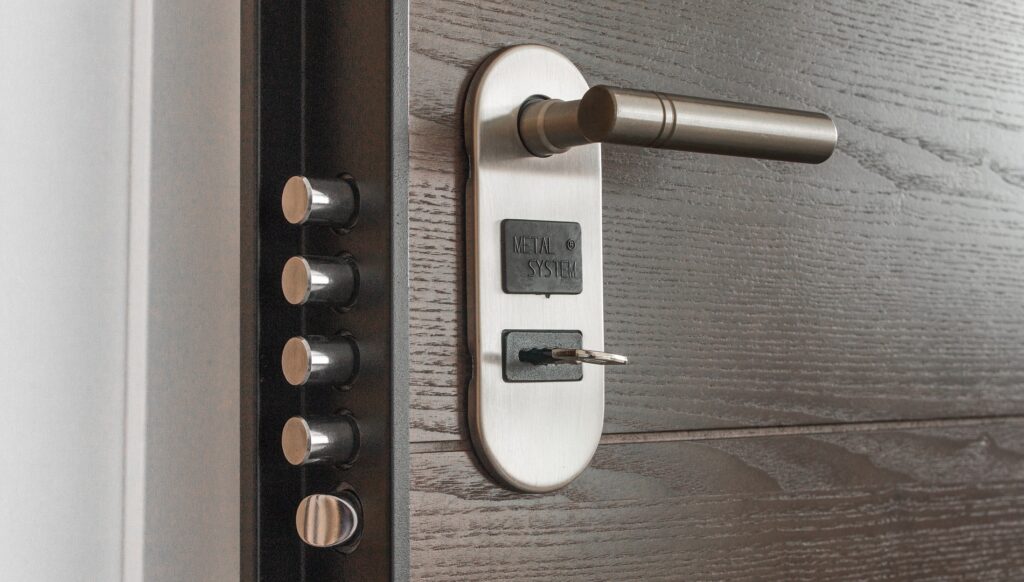
As technology continues to advance, our homes are becoming smarter and more connected. One of the most popular ways to make your home smarter is by installing a smart lock. Smart locks provide an added layer of security, convenience, and control over who enters and leaves your home. However, with so many different types of smart locks on the market, it can be overwhelming to choose the right one for your needs. In this article, we’ll explore the different types of smart locks available and their features.

Keypad Smart Locks
Keypad smart locks are one of the most common types of smart locks on the market. As the name suggests, these locks feature a numeric keypad that allows you to enter a code to unlock the door. This type of lock is ideal for those who want to provide access to their home to family members, friends, or housekeepers without the need for a physical key. Some keypad locks also offer the option of creating temporary codes that can be used for a set period of time and then automatically expire.
Bluetooth Smart Locks
Bluetooth smart locks use Bluetooth technology to connect to your smartphone or other Bluetooth-enabled devices. These locks are usually easy to install and can be operated remotely from your smartphone. Some Bluetooth locks also offer features such as auto-unlock, which unlocks the door as you approach, and auto-lock, which locks the door automatically after a set period of time.
Wi-Fi Smart Locks
Wi-Fi smart locks are another popular option that allows you to remotely control your lock from anywhere with an internet connection. These locks connect to your home’s Wi-Fi network and can be operated through a smartphone app. Some Wi-Fi smart locks also offer voice control through devices such as Amazon Alexa or Google Assistant.
Z-Wave Smart Locks
Z-Wave smart locks use Z-Wave technology to connect to other smart home devices, such as a hub or smart thermostat. This allows you to control your lock and other smart home devices through a single app. Z-Wave locks also offer increased security, as they use a different frequency than Wi-Fi and Bluetooth, making them less susceptible to hacking.
Fingerprint Smart Locks
Fingerprint smart locks use biometric technology to unlock the door with a fingerprint scan. These locks are highly secure, as each person’s fingerprint is unique. This type of lock is ideal for those who want quick and easy access to their home without the need for a physical key or code.
Face Recognition Smart Locks
Face recognition smart locks are similar to fingerprint locks, but instead of using a fingerprint, they use facial recognition technology to unlock the door. This type of lock is highly secure and convenient, as it can recognize multiple faces and provide access to family members, friends, or housekeepers without the need for a physical key or code.
Hybrid Smart Locks
Hybrid smart locks combine two or more types of smart lock technology to provide additional security and convenience. For example, a hybrid lock may combine a keypad and a fingerprint scanner or a Bluetooth and Wi-Fi connection. These locks offer increased flexibility and customization, as you can choose the features that best fit your needs.
There are many different types of smart locks available on the market, each with its own unique features and benefits. When choosing a smart lock for your home, it’s important to consider your specific needs and preferences. Do you want a lock that is easy to install and operate remotely? Do you want a lock that offers multiple access options, such as keypad and fingerprint scanning? By considering these factors, you can choose the right smart lock for your home and enjoy the added convenience, security, and control that it provides.
When it comes to choosing a smart lock, it’s important to consider the level of security that it offers. While all smart locks provide an added layer of security compared to traditional locks, some are more secure than others. For example, locks that use biometric technology, such as fingerprint or face recognition locks, are generally considered to be more secure than those that use codes or Bluetooth connections.
It’s also important to consider the installation process and compatibility with your existing door hardware. Some smart locks require professional installation, while others can be installed easily by the homeowner. Additionally, some locks may be compatible with certain types of doors, while others may not be.
Finally, it’s important to consider the price and ongoing costs associated with a smart lock. While some smart locks can be relatively affordable, others can be quite expensive. Additionally, some locks may require ongoing subscription fees for certain features or services.
Overall, smart locks are a great way to make your home smarter, more secure, and more convenient. With so many different types of smart locks available, it’s important to consider your specific needs and preferences when choosing the right lock for your home. Whether you choose a keypad, Bluetooth, Wi-Fi, Z-Wave, fingerprint, face recognition, or hybrid smart lock, you can enjoy the peace of mind that comes with knowing that your home is secure and protected.
